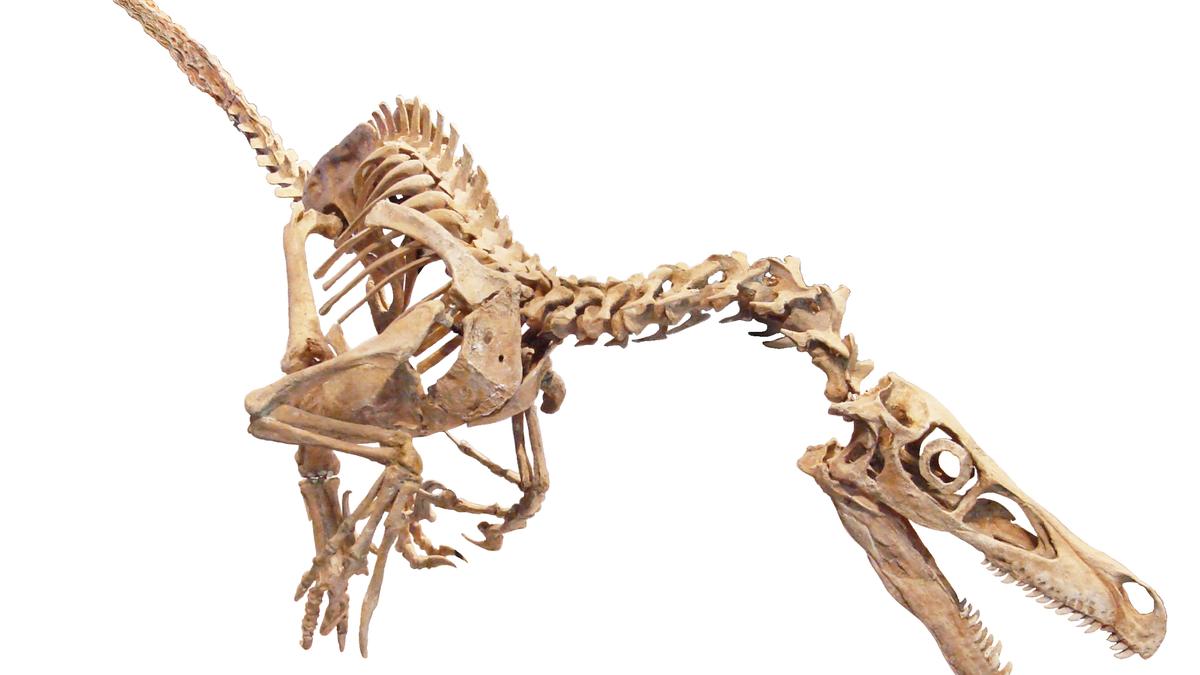
How did the dinosaurs become birds? The nose knows Premium
The Hindu
Dinosaurs evolved to birds over millions of years, changing from cold-blooded from warm-blooded in the process. A new study has reported that warm-blooded animals have larger nasal cavities than cold-blooded ones, which could help cool their larger brains (relative to head size). Specifically, it reported finding the long-sought physiological function of the respiratory turbinate.
In a famous 1859 book, ‘On the Origin of Species’, the British naturalist Charles Darwin presented the world with the theory that life-forms evolved through natural selection.
A decade later, after he noticed that a bone in a turkey he was eating resembled a fossil of the theropod Megalosaurus that lay in his office, the anatomist Thomas Henry Huxley suggested that the birds of today could be the descendants of the extinct dinosaurs.
The proof of Huxley’s idea came a century later, yet some mysteries persisted as well. One was that both birds and dinosaurs have and had brains of a similar size – even as other parts of dinosaurs evolved to become smaller. The brain generates heat that needs to be moved away, so how did the smaller bird cranium manage this?
A study published in the journal Royal Society Open Science suggests the nasal cavity might have the answer.
“The evolution of the skull of dinosaurs to birds has been one of the main focuses in dinosaur palaeontology for a long time,” Seishiro Tada, a researcher at the University of Tokyo and National Museum of Nature and Science, Japan, whose team conducted the study, told this writer.
“By focusing on the nose, this study helped us improve our understanding of the cranial evolution of dinosaurs to birds.”
In 1998, two fossils discovered in China provided paleontological evidence that modern birds had evolved from theropod dinosaurs. The 120-million-year-old fossils, of the species Protarchaeopteryx and Caudipteryx, depicted different stages in the evolution of birds from terrestrial, two-legged dinosaurs with feathers.

Podcasts have become our best friends, especially during the Covid-19 pandemic. Whether you are cooking, sketching or going on an evening walk, there is a show that matches your mood. From horror tales to informative conversations to just two friends talking about anything & everything relatable, podcasts have become a part of our lives unknowingly. Over the years, more voices have joined this audio landscape and filled it with stories that resonate with our lives. Podcasts serve as a reminder that everyone has a story worth telling and listening to!










